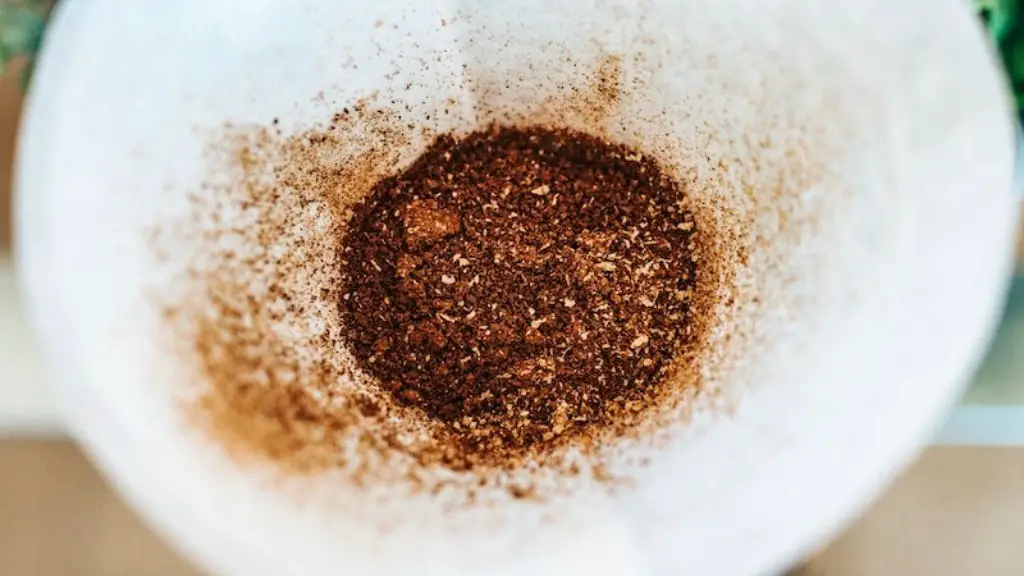Coffee is one of the most ubiquitously consumed beverages across the globe. The recent popularity of decaf coffee has seen those who struggle to sleep after their morning cup of java an alternative from which to choose. But, is it really okay to drink lots of decaf coffee?
In general, having too much coffee is not recommended regardless of whether it’s decaffeinated or not. Not only does it contain large amounts of caffeine, but it can also leave you feeling dehydrated due to its diuretic effects. It can also lead to acid reflux, headaches and anxiety.
Although caffeine is not the only stimulant in coffee, it is the main one responsible for causing jitters, anxiety, and insomnia. Caffeine can also disrupt sleep patterns, cause headaches and nausea, and prevent the body from absorptive minerals, like calcium and magnesium. Decaffeinated coffee is lower in caffeine, so it may cause fewer of these side effects – but not completely eliminate them.
According to the Mayo Clinic, a moderate amount of decaffeinated coffee is safe for most people, with one or two cups per day having no adverse health effects. However, over-consumption of the beverage can lead to dehydration, insomnia and other frsutrating side-effects. So, instead of over-consuming decaf coffee, it is recommended to spread out caffeinated beverages throughout the day and combine it with plenty of water.
On the plus side, decaf coffee can still provide benefits. It may help protect against type 2 diabetes, liver disease, and Parkinson’s Disease. It can also offer antioxidants, which reduce cell damage – though these antioxidant benefits are lower in decaffeinated coffee compared to caffeinated coffee.
Given the lack of data on decaffeinated coffee specifically, most doctors’ advice is the same as for regular coffee: drink it in moderation and consume no more than four cups per day. Any more than this is considered excessive and might cause harm, so if you’re going heavy on the decaff, it’s best to consider cutting back.
Different Types Of Coffee
There are quite a few types of coffee available on the market today, but all of them typically come in two forms: caffeinated or decaffeinated. For example, traditional drip coffee is a popular choice and is typically brewed with infused hot water. Alternatively, Espresso is a concentrated form of coffee that is often used as a base for cappuccinos and lattes.
Instant coffee is another popular choice and can be prepared quickly with just hot water; it usually has less flavor and body than drip coffee. Cold brew, as the name suggests, is made by steeping coffee grounds over a lengthy period of time, then adding water. It’s also one of the healthiest forms of coffee.
Coffee can even be made with ingredients such as cream, sugar, and spices. For example, a mocha is a combination of coffee and chocolate; a flat white combines coffee and steamed milk; and an affogato is espresso poured over vanilla ice cream.
Health Benefits of Decaf Coffee
Despite having a fraction of the caffeine, decaf coffee still contains trace amounts that can provide some health benefits. While these benefits might not rival those of its caffeinated cousin, some research suggests that drinking moderate amounts of decaf coffee can still provide a few benefits, including:
- A lower risk of cardiovascular disease
- A lower risk of type 2 diabetes
- A reduced risk of liver diseases, such as cirrhosis and cancer
- A reduced risk of Parkinson’s disease
- Potential protection against certain cancers
- An increase in cognitive function, including improved alertness and concentration
In addition to being richer in antioxidants than caffeinated coffee, decaf is also an excellent source of minerals like magnesium, phosphorous, and potassium – all of which help with bodily functions and optimal health. Decaf also provides a decent amount of fiber, which is important for healthy digestion.
Effect Of Caffeine On Sleep
Since caffeine is a stimulant, it has the ability to disrupt your sleep-wake cycle when consumed too close to bedtime. Caffeine is typically processed by your body within three to six hours, so it’s best to avoid drinking coffee six hours before you plan on going to sleep. In addition, as caffeine is a stimulant, it can cause feelings of restlessness and anxiousness, which can make it more difficult to fall asleep at night.
Decaf coffee contains a fraction of the caffeine found in caffeinated coffee, so it will not have as strong an effect on sleep. However, it can still cause some disturbance due to its trace levels of caffeine, so it is best to avoid drinking it late in the evening or before bed.
Choosing The Right Coffee
Instead of automatically assuming that decaf drinks are the best option for those with caffeine sensitivity, it’s important to consider swapping to other forms of coffee. For example, if you are looking for a less intense drink, cold brew may be the better choice. A study found that cold-brewed coffees were found to have lower concentrations of caffeine than hot drip coffees, making them ideal for those who are more sensitive to caffeine.
When it comes to selecting regular or decaffeinated coffee, it is important to consider the source. Try to look for organic and Fair Trade products, as these may be chemical-free and created under better working conditions. Additionally, the quality of the beans used in the brew can also make a difference, so try to find beans that have been freshly roasted and ground.
Conclusion
In conclusion, there can be some health benefits to drinking decaf coffee. But drinking too much decafeinated coffee could lead to dehydration, insomnia and other unwanted negative effects. When deciding on the coffee you drink, it is important to consider the amount, the type, and the source.




